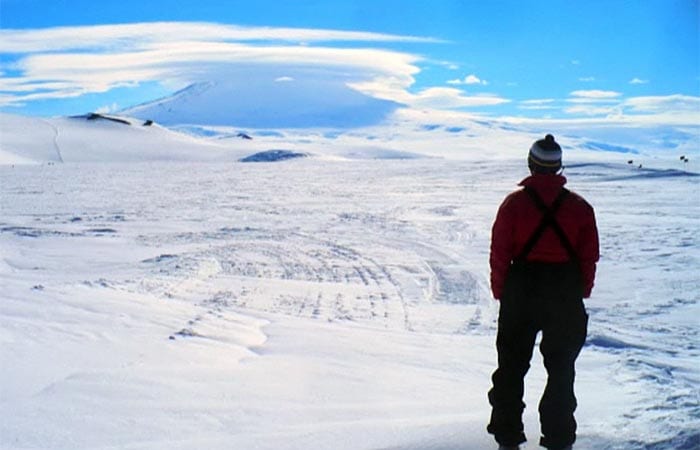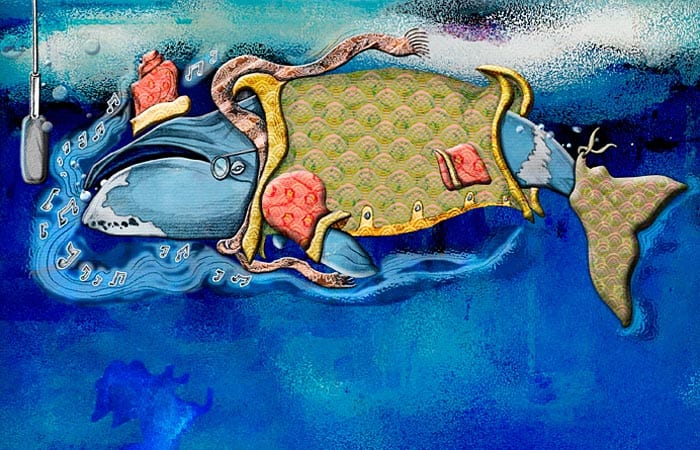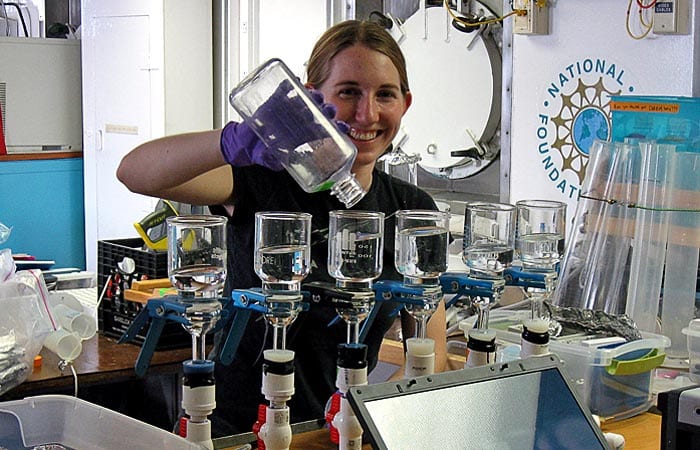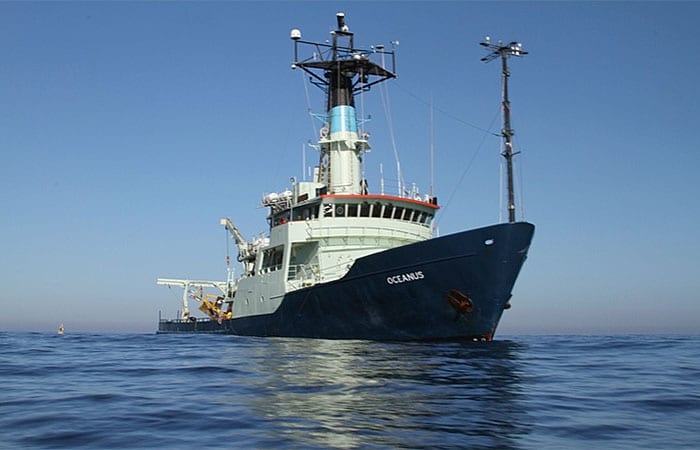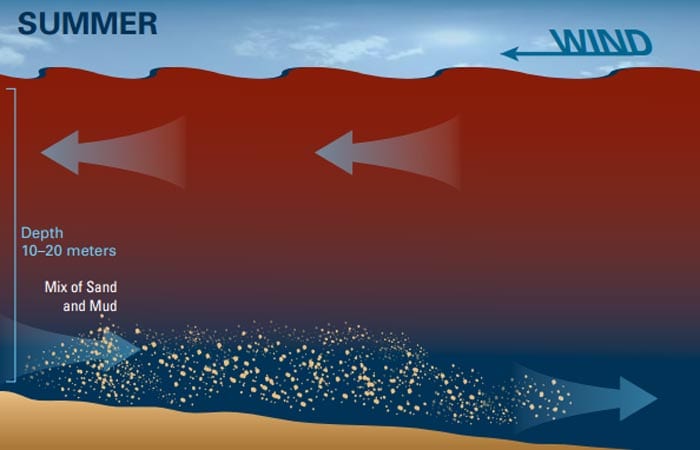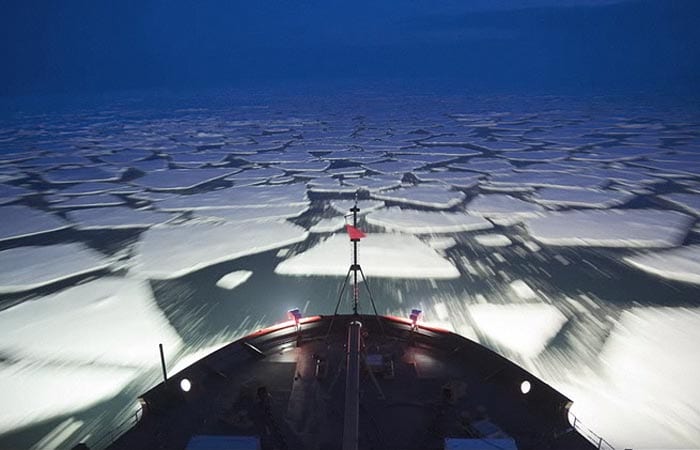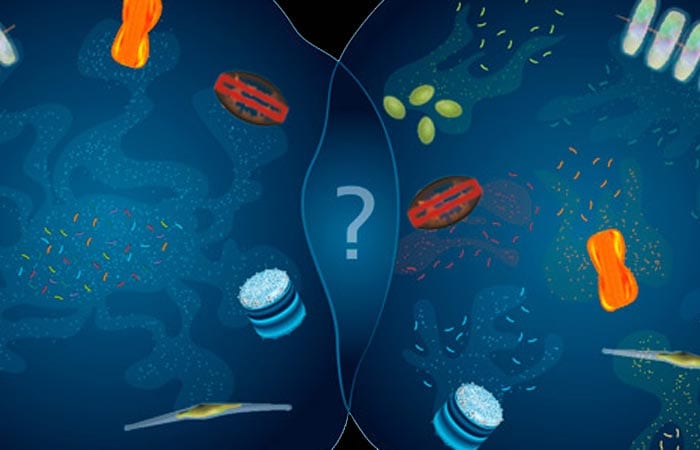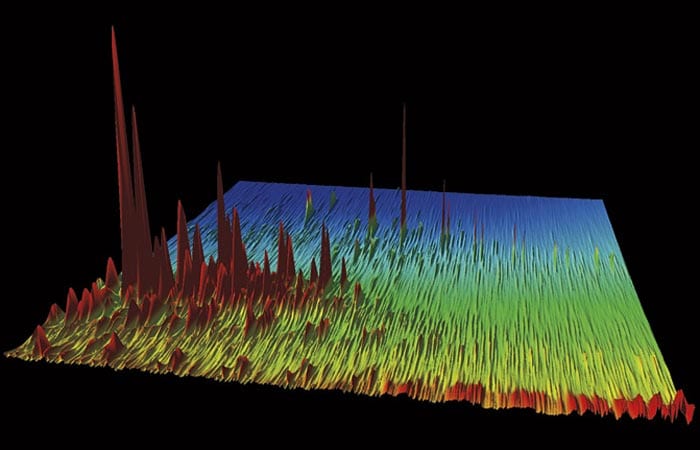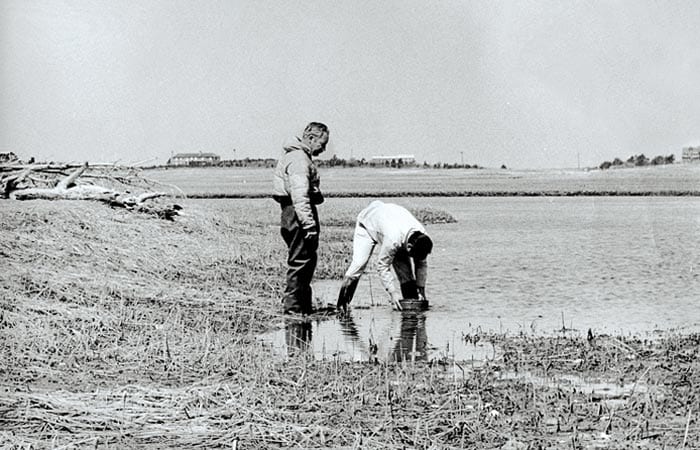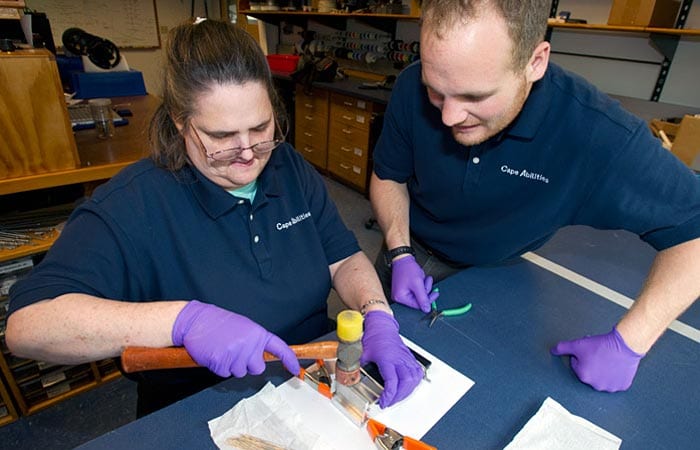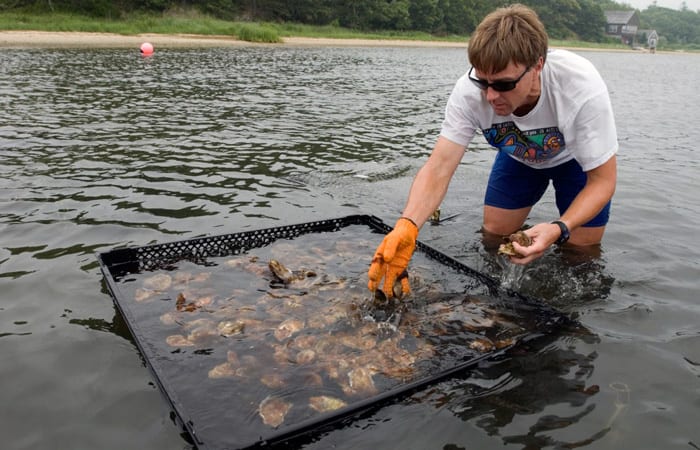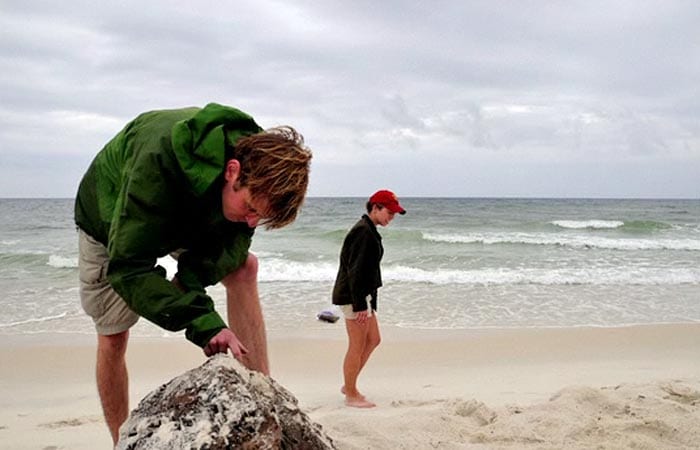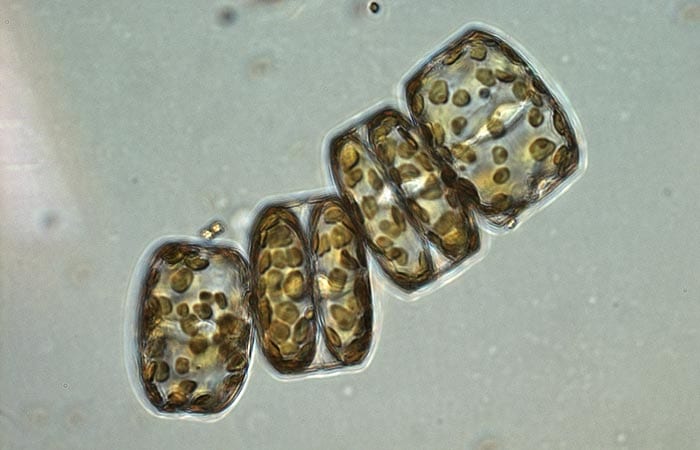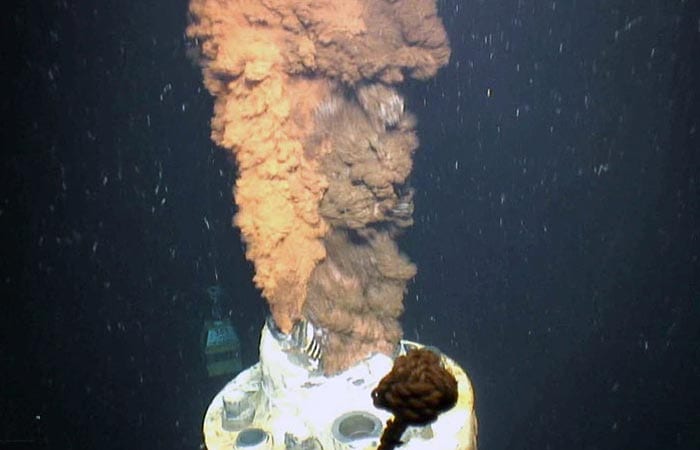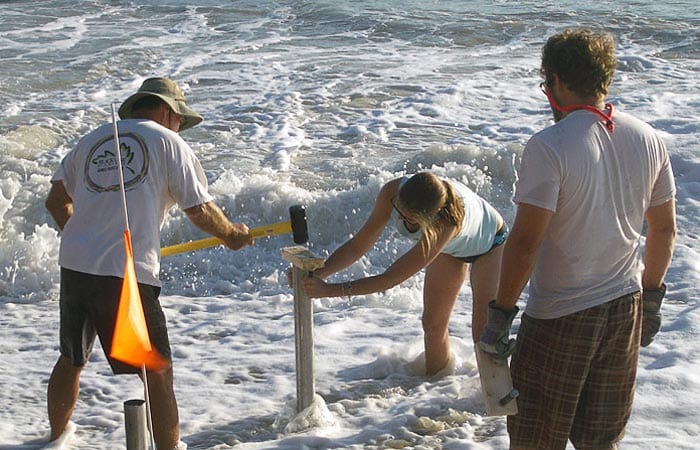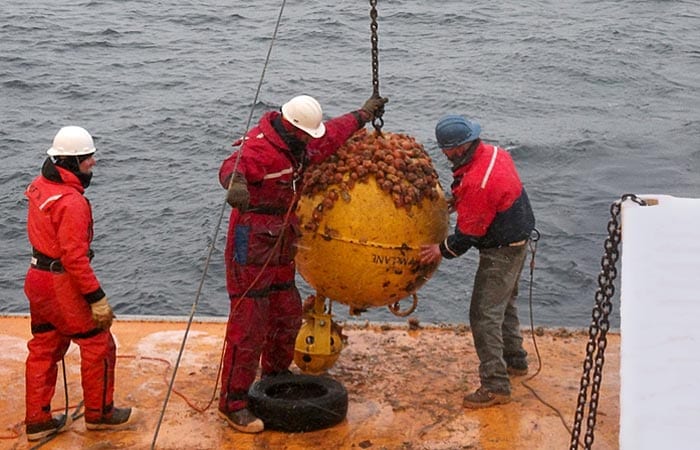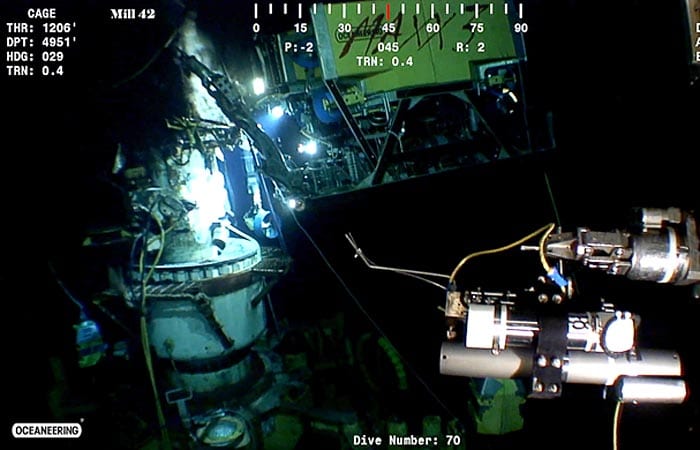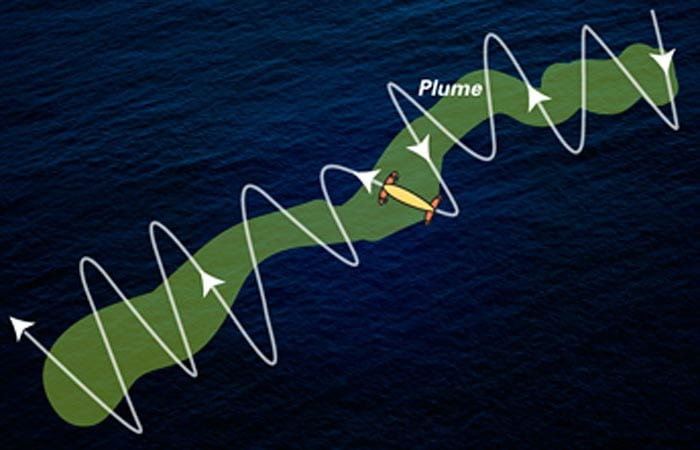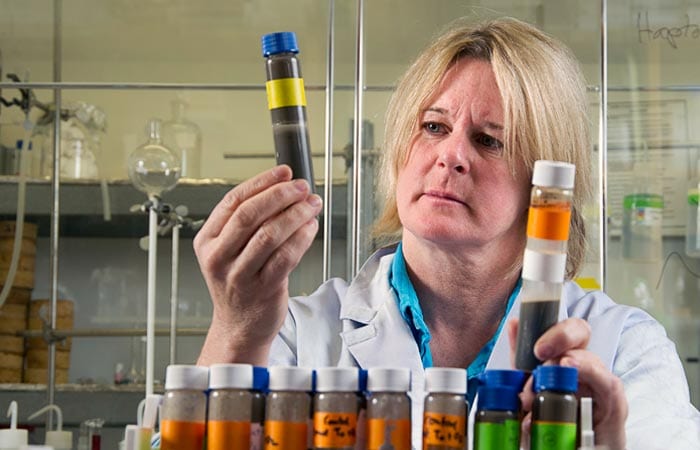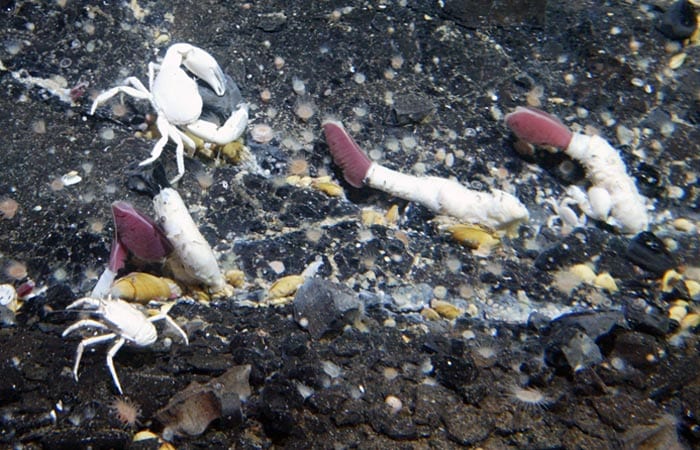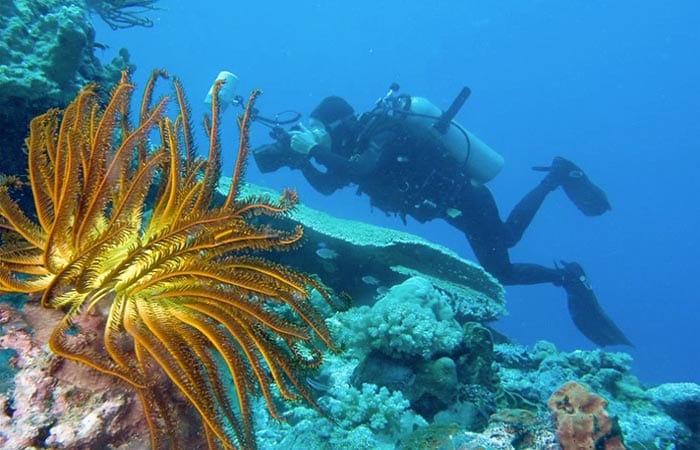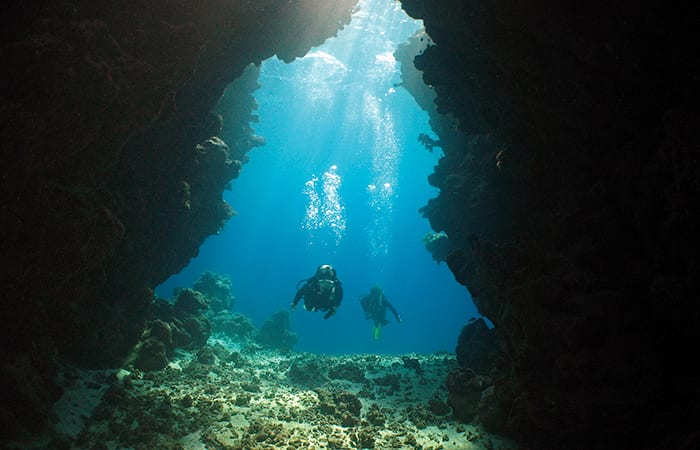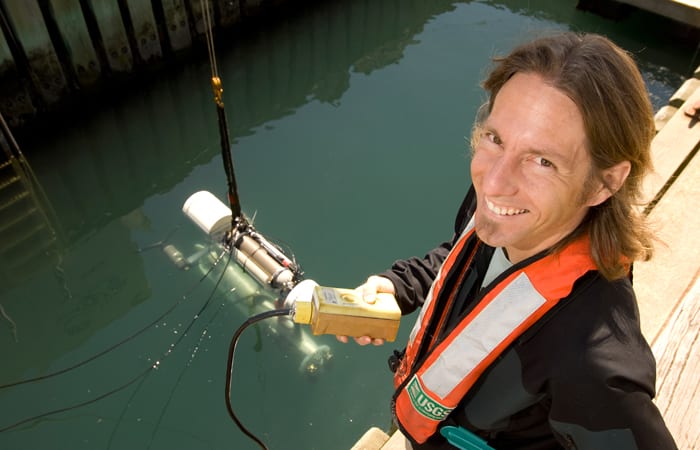Feature
The Scientist Who Stays Out in the Cold
The Latest Fashion in Bowhead Whale Songs
Whales, it turns out, are dedicated followers of fashion. There’s a style to the song they sing to attract mates, and that style shifts. To keep up with their very…
Read MoreTracking an Elusive Chemical: Estrogens
On a crisp October morning, our small boat bobbed gently 10 miles offshore. The sun glinted off the dark blue surface of Massachusetts Bay and directly below us, all of…
Read MoreThe Ocean’s Tiny Chemists
Once as I was flying cross-country over the middle of the United States, the woman in the seat next to me remarked: “You know, in Nebraska when there’s a game…
Read MoreAdieu to the Research Vessel Oceanus
Between the Beach and the Deep Blue Sea
Capt. Ken Houtler laughed when I remarked that I didn’t know the sun rose this early as I boarded his ship last summer. Now climbing aboard again in January, I…
Read MoreInto the Dark and Ice
A Drop in the Ocean is Teeming with Life
“The universe is made of stories …“ —Muriel Rukeyser There are countless stories in every drop of seawater. But with a cast of millions and more plotlines than a daytime…
Read MoreEvery Chromatogram Tells a Story
Where is this mountainous landscape? Actually, that’s the wrong question. It’s a landscape, all right, but it’s a chemical landscape: You’re looking at oil from the Deepwater Horizon spill. Each…
Read MoreAt Deepwater Horizon, Basic Research Was Applied
“Basic research, directed simply toward more complete understanding of nature and its laws, embarks upon the unknown. Clearly, that which has never been known cannot be foretold, and herein lies…
Read MoreCape-Able Workers Build Deep-Sea Devices
In 2009 Rob Evans knew he had a laborious task coming. He needed to build 120complicated and delicate silver chloride electrodes for deep-sea instruments. He also wanted to change the…
Read MoreWhere Will We Get Our Seafood?
By 2030 or 2040, most seafood bought by Americans will be raised on a farm, not caught by fishermen. And, unless policies governing aquaculture in the United States change, the…
Read MoreResearch Road Trip
Psychotherapy for Plankton
The scene: A diatom is out of its oceanic habitat and on a couch, talking to a therapist. The diatom is stressed. It can’t ever seem to get enough nutrients.…
Read MoreUp From the Seafloor Came a Bubbling Brew
Eleven days after the explosion at the Deepwater Horizon oil rig on April 20, 2010, representatives from BP called Andy Bowen at Woods Hole Oceanographic Institution (WHOI). “It had become…
Read MoreShifting Sands and Bacteria on the Beach
Most coastal communities in the United States test the water at beaches for the presence of bacteria. But they don’t routinely test the sand. Does sand also harbor bacteria? Until…
Read MoreThe Ghost Mooring
Just before leaving for a long-awaited vacation, Scott Worrilow came in to work on a Monday morning in April 2011, just for a few minutes, to do a routine daily…
Read MoreFour Men. Twelve Hours. One Crucial Sample.
The prize they coveted amounted to nothing more than about four gallons of natural gas and less than a half-cup of oil. Where it came from, however, made it unique.…
Read MoreA Plume of Chemicals from Deepwater Horizon
Along with the torrent of hot gas and oil spewing from the bottom of the sea, hot hints and rumors were also streaming out of the Gulf of Mexico in…
Read MoreOf Predators, Prey, and Petroleum
Protists are the Rodney Dangerfields of marine microbes. Although marine bacteria emerged as heroes in the Deepwater Horizon affair, gobbling up vast amounts of spilled oil and gas, few people…
Read MoreOnce More Unto the Rift
In the beginning, there was the Garden of Eden. It was a lush primordial oasis of life, bursting with exotic life forms. Now, scientists have embarked on a research expedition…
Read MoreScientific Diving: The Benefits of Being There
<!– “Shallow Water Diving: the benefits of being there” spotlights researchers using scuba in shallow water. These scientists, working on coral reefs, fish ecology, or seafloor topography, require uninterrupted lengths…
Read MoreShallow Water Diving
multimedia, why scientists use SCUBA in shallow water
Read More
